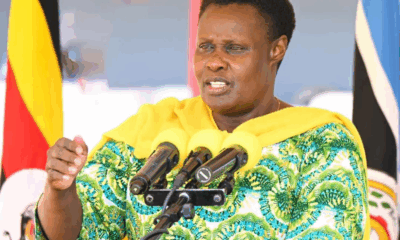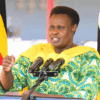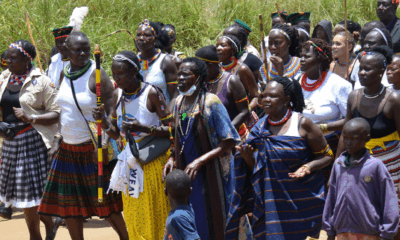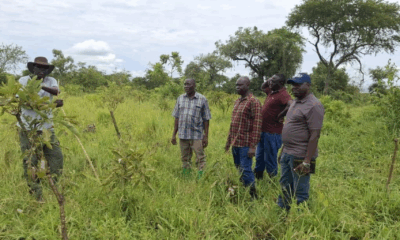News
MPs task gov’t to walk its talk on digital transformation
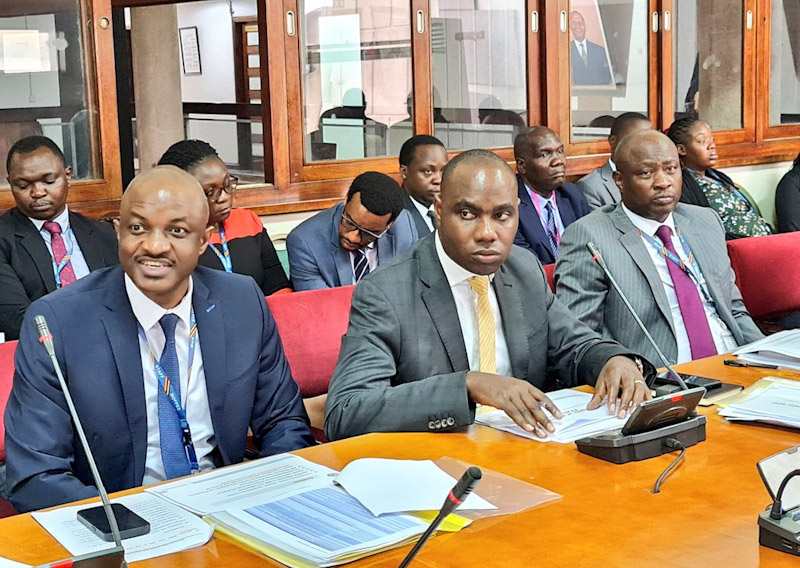
Permanent Secretary and Secretary to Treasury Ramathan Ggoobi (left) and the Minister of Finance for General Duties Henry Musaasizi appeared before MPs recently to present the budget Framework paper
Members of Parliament have tasked the government to walk its talk on its promise to usher in an new era of digital transformation, which it made during the current budget reading.
Kashari North Member of Parliament Basil Bataringaya made the reminder to the government during an interface between the Parliamentary committee on Finance with the Ministry of Finance team.
MP Bataringaya called on the Executive to prioritize the funding towards the digital transformation in the national budget if it is a key driver of the economy.
Bataringaya said that despite the fact that the Digital Transformation is and continues to be part of the theme for the National Budget, there is no substitutive budgetary allocation towards the digital transformation especially in schools where young people can tap into it.
The Ministry of Finance team was led by State Minister Henry Musasizi. They were presenting the Budget Framework Paper for financial year 2024/2025.
The theme of the National Budget Framework Paper for Financial Year 2024/2025 is: Full monetization of the Ugandan economy through Commercial Agriculture, Industrialization, Expanding and Broadening services, Digital transformation and market access.
Bataringaya observed that it should be by policy for government to invest in Digital Transformation through supplying computers in the schools in order to accelerate the economy as envisaged.
He told The Sunrise Newspaper that it should be a government policy to supply computers to schools across the country, it should not be simply lip service.
“You know the youths are in schools and tertiary institutions…and they are the majority, they are the people that would use the digital technology to have an impact on the economy but when you go to our schools and tertiary institutions across the country we are not contributing substantially to this digital transformation which we sing, I would like to see this in the budge,” said Bataringaya
He added that if I don’t see the supply of computers in our schools in Kashari constituency, that means no other school across the country receives computers.
Bataringaya also expressed concern over the way the ministry of finance, planning and economic development is managing the huge domestic arrears accrued from supplies to government by local companies.
He says allocation of 200 billion shillings in the Budget Framework Paper for financial year 2024/2025 to clear domestic arrears worth over 7.7 trillion shilling is not feasible.
He says that if we continue this way as a country, we will need 39 years to clear off this domestic debt which will negatively impact the local companies that actually get loans to supply government.
Jane Avur Pacuto, Pakwach district Woman MP also noted that having a budgetary provision of only 200 billion shillings for the domestic debt that has accumulated over the years is not good for the private sector which drives the economy.
Pacuto called on Finance ministry to increase the figure for paying domestic arrears if the government is to reduce on the negative effect of delayed payment to local supplies.
Supplementing the concerns of the members on the matter, the committee chairperson Amos Kankunda Kibwika who is also Rwampara MP asked the Finance ministry to submit in writing, the domestic arrears reduction strategy this week.
The outgoing shadow minister for finance, Butambala County MP, Muhammed Muwanga Kivumbi who is also asked the Ministry of Finance delegation to explain the drastic cut of the budget for domestically funded projects.
Muwanga Kivumbi asked the team led by Musasizi to explain why the budget for domestically funded projects is being cut from 6 trillion shillings to 3 trillion shillings.
Ramathan Ggoobi, the permanent secretary and secretary to treasury clarifies that the 7.7 trillion shillings is not only domestic arrears, but it also includes other debts like the Bank of Uganda debt.
Ggoobi further explains that government is committed to paying the domestic debt and it has been allocating funds for this item annually although the challenge is that debt keeps growing every year.
Responding to the question of the effectiveness of the disbursed funds under Parish Development Model (PDM), Ggoobi assured the committee members that the ministry is keen and ready to follow-up the utilization of the money.
He said that the members first should be grateful that the ministry has been able to mobilize the funds and disburse it to the population something that was doubted in the first instance.
“After delivering the PDM money to the people at the parish level for the first time in the history of this country, we will be able to track its utilization and we will allow all the reports,” Ggoobi said.
Comments





